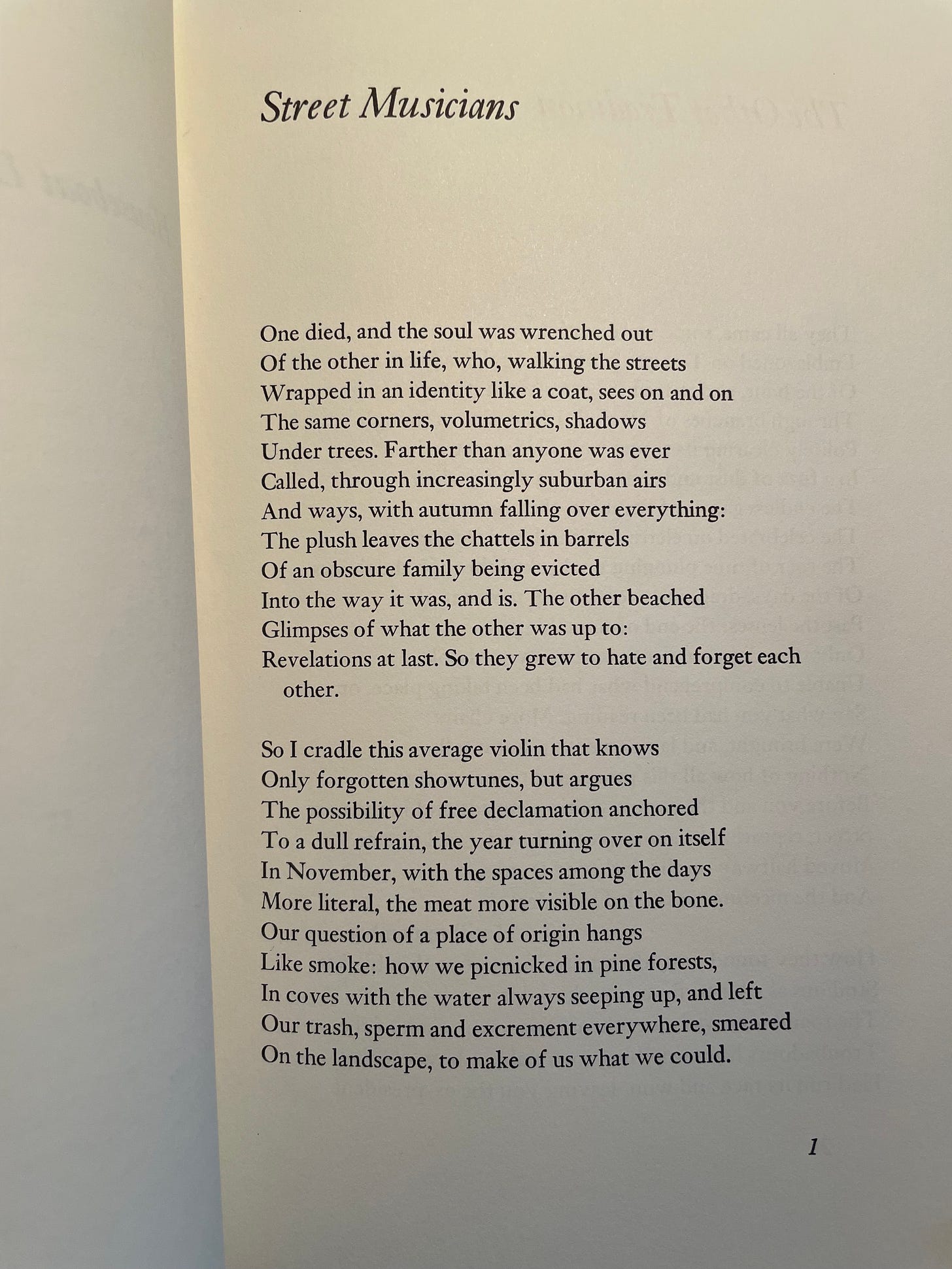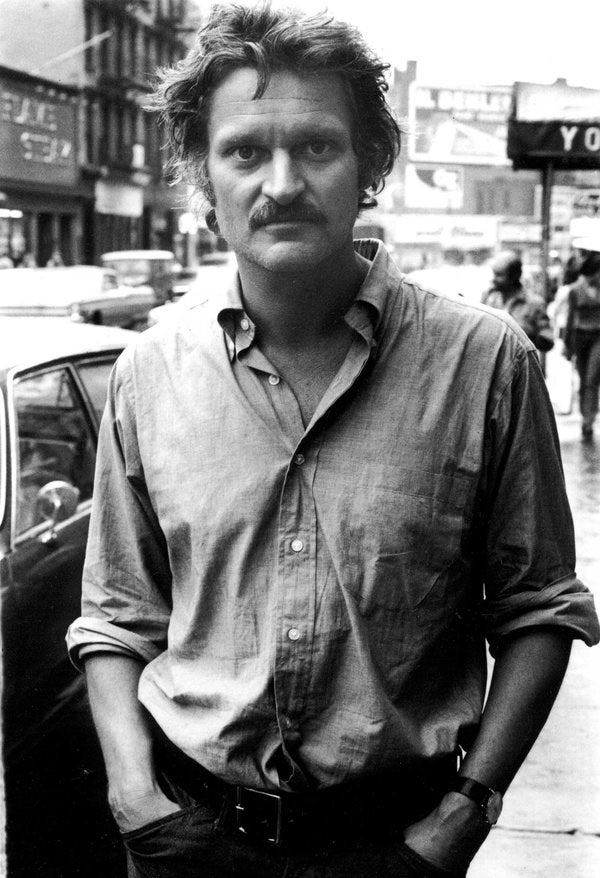I talked with my friend Andrew Epstein about John Ashbery, a towering figure in the poetry of the last hundred years, and Ashbery’s beautiful and haunting poem “Street Musicians.” You can listen to our conversation on Apple Podcasts, Spotify, and Google Podcasts.
“Street Musicians” is the first poem in Ashbery’s Houseboat Days (1977). That book was the follow-up volume to the one that made him truly famous, Self-Portrait in a Convex Mirror (1975), which earned Ashbery the so-called “triple crown” of American poetry prizes: the Pulitzer Prize, the National Book Award, and the National Book Critics Circle Award. In Andrew’s account, “Street Musicians” gave Ashbery, who was always prone to “narrativizing his own career” (albeit in coded and often obscure ways) a chance to reflect on that particular moment, a moment, yes, of triumph, but also a moment in which Ashbery felt like he had been separated from his peers. Here is the poem as it appears in my copy of Houseboat Days.
Among the peers from whom Ashbery might have felt separated at this midpoint in his life was Frank O’Hara (subject of our very first episode!). Separated in two senses: elevated into a kind of general fame and canonical, middle-of-the-road critical approbation that O’Hara (and the other poets of the so-called New York School) had not (yet?) achieved, but also more simply separated in life. O’Hara had died at the age of 40 in a tragic accident a decade earlier, in 1966. Andrew makes the case in his first book (in a passage that is also available online here) that “Street Musicians” can be read as an elegy for O’Hara, perhaps the “one” who “died” in the poem’s first line, and whose death left the “other,” presumably Ashbery himself, to have to continue on into “increasingly suburban airs / And ways,” distant as those “airs” and “ways” were from the streets of New York City.
There are layers here: as Andrew so movingly notes, when Ashbery “writes about what seem to be friends, he often is simultaneously writing about siblings, and brothers.” Ashbery lost his own brother when the two were young children. (“Once upon a time there were two brothers,” Ashbery later wrote: “Then there was only one: myself.”) Loss here is a kind of palimpsest: a friend who was like a brother, a brother who might have become a friend—and, in the wake of those losses, at middle age, “somebody being called to move on.”
A partial list of links to things we talk about in the episode:
The PennSound archive of Ashbery recordings
Ashbery’s poem “Soonest Mended”
Ashbery’s “Self-Portrait in a Convex Mirror”
Ashbery’s “Chateau Hardware”
Ashbery’s “The History of My Life”
Wallace Stevens’s “A Postcard from a Volcano”
Andrew Epstein is Professor of English at Florida State University and the author of three books: Beautiful Enemies: Friendship and Postwar American Poetry (Oxford UP, 2009), Attention Equals Life: The Pursuit of the Everyday in Contemporary Poetry and Culture (Oxford UP, 2016), and The Cambridge Introduction to American Poetry since 1945 (Cambridge UP, 2022). He blogs about the poets and artists of the New York School at Locus Solus and his essays and articles have appeared in such publications as the New York Times Book Review, Contemporary Literature, LARB, American Literary History, The Wallace Stevens Journal, Comparative Literature Studies, Jacket2, and Raritan. You can follow Andrew on Twitter.
Once again, you can listen to our conversation on Apple Podcasts, Spotify, and Google Podcasts. As ever, please follow, rate, and review the podcast if you like what you hear. Share an episode with a friend (or sibling!). And subscribe here, where you’ll get a newsletter to go with each episode.






Your discussion with Walt Kindly on Kenneth Koch’s “One Train May Hide Another” enhanced, for me this discussion you had with Andrew Epstein on John Ashbery! I’m caught up with all your podcasts now, but, for some unknown reason, the ones following Ashbery are “condensed” somehow with no ability for me to comment on them. I shared the David Berman discussion with a group of musician friends in New Orleans. He was new to me but not to them! Your discussion on Kenneth Koch really connected with me and I wish I could comment on it individually. I felt there was a lot that was personal to you and to me!! Thanks for doing this, Kamran! I look forward to them every week!